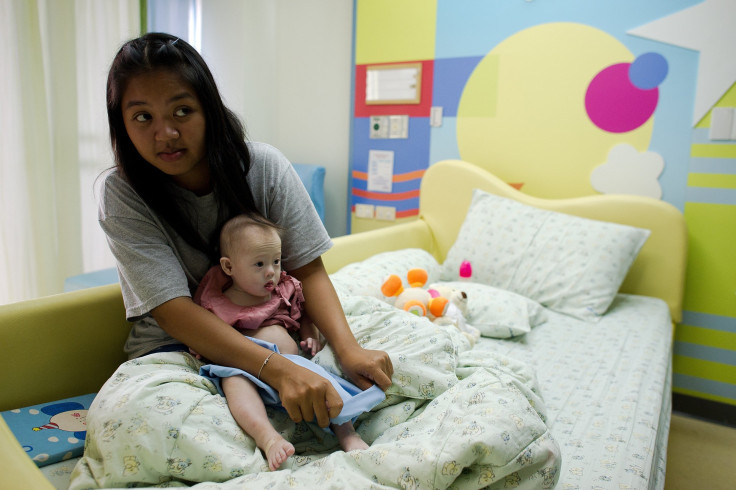Thailand Surrogate Babies: U.S., Australian Couples Prevented From Leaving With Children: Advocate

(Reuters) - U.S. and Australian couples attempting to leave Thailand with babies born by surrogate mothers have been stopped at the airport and prevented from leaving the country in recent days, an Australian surrogacy advocate said on Friday.
The crackdown follows the case of an Australian couple - one of whom is a convicted child sex offender - who left a male twin surrogate baby with Down Syndrome in Thailand, bringing only his sister back to Australia.
The incident, made public earlier this month, unleashed an international outcry over a shadowy business that rights groups say preys on poor and vulnerable women in countries such as India and Thailand.
In response, Thailand's new military government gave preliminary approval on Wednesday for a draft law to make commercial surrogacy a criminal offence.
In an apparent swift enactment of the draft law, two U.S. couples were stopped by immigration officials at Bangkok Airport on the same day while two Australian same-sex couples were intercepted on Thursday, Surrogacy Australia said.
The couples were ordered to seek parental orders from Thailand's juvenile court to formally give them custody of the babies and have engaged Thai lawyers, Surrogacy Australia global director Sam Everingham told Reuters in a telephone interview.
A spokesperson for Australia's Department of Foreign Affairs and Trade confirmed the Australian government was "assisting Australians with children born by surrogacy in Thailand who have been prevented from departing the country in recent days".
"While regulation of surrogacy in Thailand is a matter for Thailand, we continue to encourage Thai authorities to adopt appropriate transitional arrangements for any new measures they may introduce, so concerned Australians are not unduly affected," the spokesperson said.
A spokesman for Thailand's Foreign Ministry said he was not aware of any policy preventing foreign couples from leaving Thailand with their babies, as long as their paperwork was in order. Immigration at Bangkok’s international Suvarnabhumi Airport declined to comment.
A crackdown would leave in limbo an estimated 250 foreign couples, about 150 of them Australian, who have traveled to Thailand to have babies with surrogate mothers, Everingham said.
Commercial surrogacy is illegal in Australia. It is legal in some U.S. states but many U.S. couples still travel to Thailand for the procedure because it is cheaper there.
Everingham said he was meeting with senior Australian government officials later Friday to discuss consular support for Australian couples in Thailand with a surrogate baby.
"We need to respect the fact that they legislated over night on this and work around it," he said.
The draft law is awaiting final approval from the National Legislative Assembly and would then have to be formally endorsed by Thailand's King Bhumibol Adulyadej. It is unclear how long final approval will take.
David and Wendy Farnell, the Australian couple at the center of the story of "Baby Gammy", now 7 months old, and the surrogate mother told conflicting stories of how the infant came to be left behind.
In a separate case, Thai authorities said a Japanese businessman who is suspected of having fathered 13 babies using Thai surrogate mothers has fled the country.
(Additional reporting by Amy Lefevre in Bangkok Editing by Jane Wardell and Jeremy Laurence)
© Copyright Thomson Reuters {{Year}}. All rights reserved.





















